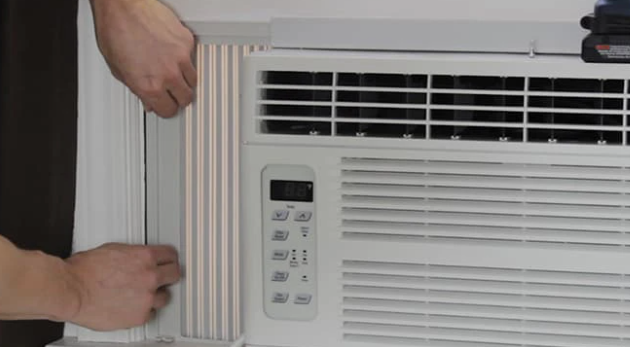Why This Recall Matters (Especially If You Use a Window AC)
When summer heat rolls in, most of us rely on window air conditioners to keep cool. But what if the very device that brings relief could be silently making you sick? That’s the concern behind the recent recall of nearly 1.7 million Midea “U” and “U+” air conditioners sold across the U.S. since 2020. The issue? Poor drainage that causes mold to grow inside the units, potentially triggering respiratory symptoms and allergic reactions in users.
As someone who lives in a dense, humid city like New York, I take air quality seriously. This recall caught my eye because mold is often invisible—yet incredibly harmful. Let’s break down what’s happening, how to check your unit, and what to do next if you’re affected.
Mold in Your AC? It’s More Common Than You Think
According to the U.S. Consumer Product Safety Commission (CPSC), moisture buildup in the Midea “U” and “U+” series models is not draining properly. That standing water becomes a breeding ground for mold. As a result, there have been:
- 152 reports of visible mold growth inside units
- 17 reports of respiratory symptoms like sneezing, coughing, and sore throats
For those with asthma, weakened immune systems, or mold allergies, exposure can be serious. But even healthy individuals may experience symptoms over time, especially if the mold is undetected.
Which Air Conditioners Are Affected?
If you bought a window AC unit between March 2020 and May 2025, double-check the brand and model. The recall includes 8,000 BTU, 10,000 BTU, and 12,000 BTU models sold under the following names:
- Midea
- Comfort Aire
- Danby
- Frigidaire
- Insignia
- Keystone
- LBG Products
- Mr. Cool
- Perfect Aire
- Sea Breeze
They were sold in major retailers like Amazon, Costco, Best Buy, Home Depot, Walmart, and BJ’s. Prices typically ranged from $280 to $500.
How to Check If Your Unit Is Recalled
Locate the model and serial number on your air conditioner—usually found on a sticker on the side or back of the unit. Then visit the official Midea recall website or call 1‑888‑345‑0256 to confirm if your unit is affected.
Symptoms of Mold Exposure
If you’ve been using a unit that’s part of the recall, pay attention to the following symptoms:
- Persistent coughing or sneezing
- Sore throat or congestion
- Itchy or watery eyes
- Unusual fatigue or headaches
- In more severe cases: respiratory infections or asthma flare-ups
These symptoms can easily be mistaken for seasonal allergies or colds—especially in summer. If they persist or worsen indoors, mold could be a contributing factor.
What Midea Is Offering: Refunds and Repair Kits
Midea is offering two main solutions for consumers:
- Free Repair Kit: Designed to fix the drainage problem and reduce mold risk.
- Refund: Depending on the purchase date, you may be eligible for a full or prorated refund.
The company is also providing free shipping and clear instructions for installation or return. If you’re uncomfortable fixing the unit yourself, consider professional help—or opt for the refund.
Why Air Conditioner Mold Is a Bigger Problem
According to environmental health experts, HVAC systems and window units are often overlooked sources of indoor air pollution. A study published by the Environmental Protection Agency (EPA) found that air conditioning filters and condensation trays commonly harbor bacteria and mold if not properly maintained. Some even contain more fungal particles than carpeting!
This is especially concerning in high-humidity areas, or in buildings with poor ventilation—exactly the kind of environments where people are most likely to use a window AC unit.
How to Prevent Mold in AC Units (Recalled or Not)
Whether your unit is part of the recall or not, here are steps you can take today to reduce mold risk:
- Clean filters monthly—use warm water and mild detergent
- Inspect for visible mold or moisture in and around the unit
- Ensure proper drainage by keeping the unit level
- Run a dehumidifier in the room during peak summer
- Use an air purifier with HEPA filter for added protection
Prevention is key when it comes to indoor mold. A little monthly maintenance can go a long way toward protecting your air quality—and your health.
Final Thoughts: Check Before You Chill
This recall is a reminder that even the most trusted appliances can come with risks—especially when moisture and ventilation are involved. If you or your family have been feeling off this summer, your AC might be more than just a cooling tool—it could be a hidden health hazard.
I encourage you to check your unit’s model number today and take action if needed. You might just breathe easier tomorrow.
